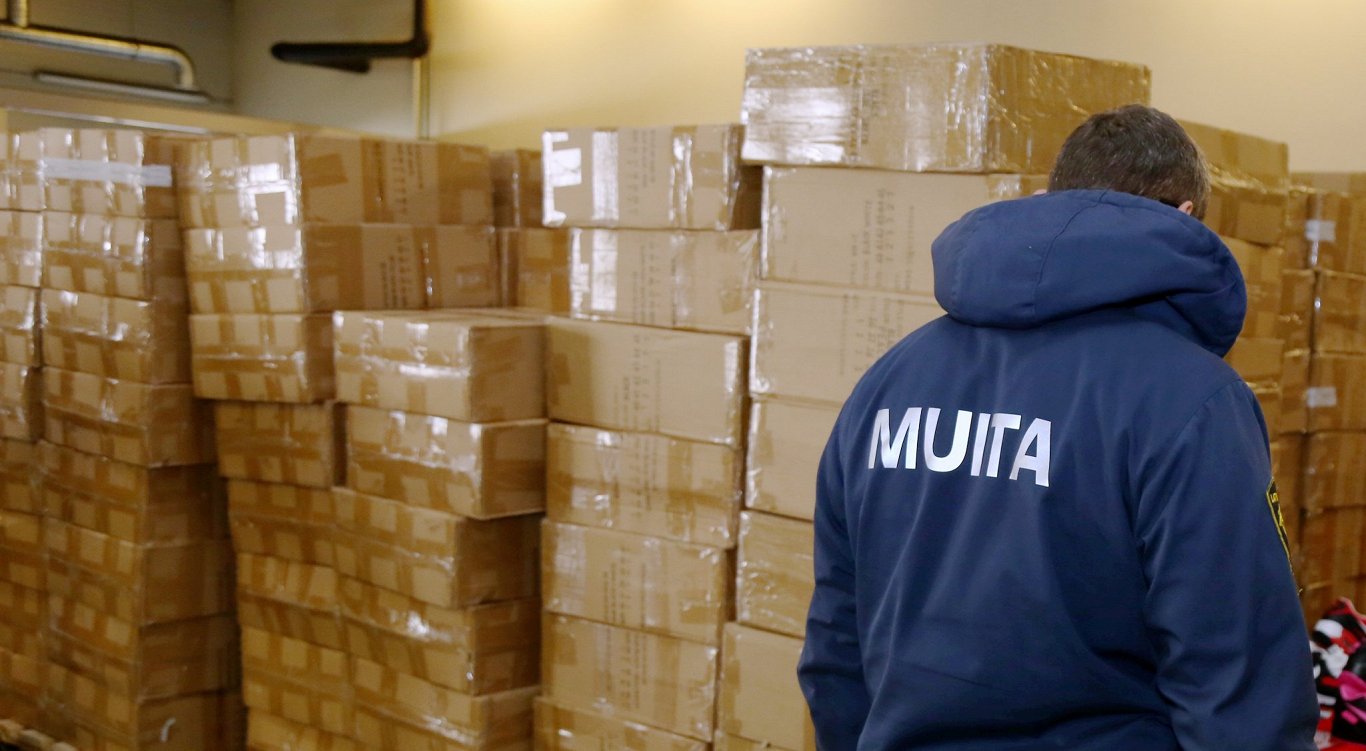The rules come into force across the whole EU and will have most impact on people making purchases from online shops in third countries such as China and the United Kingdom.
"Most of the items which require customs clearance currently come from China: according to our estimates, they constitute up to 95% of the total volume of items subject to customs clearance. If in 2020 the total number of items received at Latvijas Pasts and requiring customs clearance slightly exceeded 5,000 units per month on average, then in the first months of 2021 after Brexit that figure doubled, jumping to an average of about 11,000 items per month. The forecast of the potential volume of customs clearance after the 1st of July could be as many as 20,000–25,000 items per day,” Mārcis Vilcāns, Chairman of the Board of national postal service Latvijas pasts said.
IN BRIEF
- Previously, customs clearance and tax had to be paid only on goods valued at over 22 euros; now it is applicable to all goods.
- The rules come into force throughout the EU.
- Each shipment must be declared and tax paid before receipt.
- Gifts up to 45 euros are not subject to VAT, but must still be declared.
- If the goods have been purchased long ago but received after July 1, a declaration must still be completed and the tax paid.
- The declaration can be completed via the electronic declaration system (EDS).
- Postal service "Latvijas pasts" has also created an app for this purpose.
- As at present, goods over 150 euros are subject to both VAT and customs duty.
- If the trader is registered on the EU single portal, VAT can be included in the purchase price of the goods.
- If smart devices are not used to make declarations and payments, customs clearance services will cost 3.99 euros in person at the post office.
Until now, Latvian residents had to clear goods and pay taxes if the value of the goods exceeded 22 euros when shopping in online stores or online sales platforms and receiving items from outside the EU. Goods with a value of less than € 22 were previously tax-exempt, but that is no longer the case. Now VAT is payable from the first cent.
As before, goods with a value of more than € 150 will continue to be subject not only to VAT but also to customs duty. Excise duty will also be payable on excise goods. If the consignment contains goods subject to restrictions, such as medicines, fur clothing, etc., the simplified declaration cannot be lodged, and instead a standard import customs declaration will have to be made.
If the consignment contains excise goods, such as coffee, alcoholic and non-alcoholic beverages, excise duty is payable on them, regardless of the value of the purchased goods. The exemption from customs duty also does not apply to perfumes.
If a third-country online trader is registered on the Import One Stop-Shop (IOSS) portal of any EU Member State, they can collect VAT at the time of purchase and then transfer it to the budget of the country to which the purchased item will be sent.
In this case, the amount of VAT payable must be clearly and unambiguously indicated on the website where people shop, as well as on the purchase invoice. If the merchant uses IOSS, the customs clearance of the shipments will be performed by Latvijas pasts or other courier service.
From 1 July, a customs declaration must also be submitted for all gifts that individuals receive from their relatives or friends living in non-EU countries. As before, gifts or non-commercial items will not be subject to taxes if the value of the goods does not exceed 45 euros, but the declaration still needs to be made. If the gift is worth more than 45 euros, VAT is payable. If it is worth more than 150 euros, VAT and customs duty are both payable.
The State Revenue Service provides this example to help you get your head around the new requirements.
"A person has purchased two items with the respective values of EUR 5 and EUR 10 in a Chinese online store. The goods will be received in one consignment and the delivery costs will amount to EUR 1. The standard VAT rate will apply to both items. In this case the person will have to pay 21% of EUR 16 (5+10+1), i.e. EUR 3.36."
And with regard to gifts, this is the example used.
"A person receives two items (valued at EUR 30 and EUR 20) in one gift, the total value of EUR 50. In this case, the person will have to pay VAT in the amount of 21% of EUR 50, i.e. EUR 10.50."
More information about what you'll need to do and how to do it is available in English from the State Revenue Service and Latvijas pasts.






























